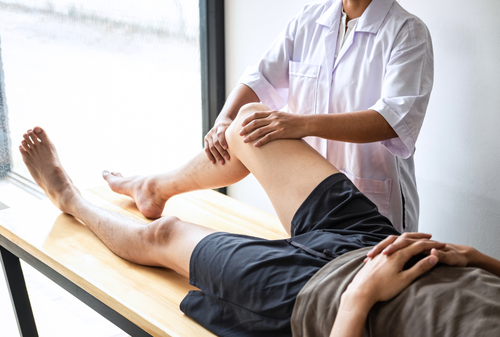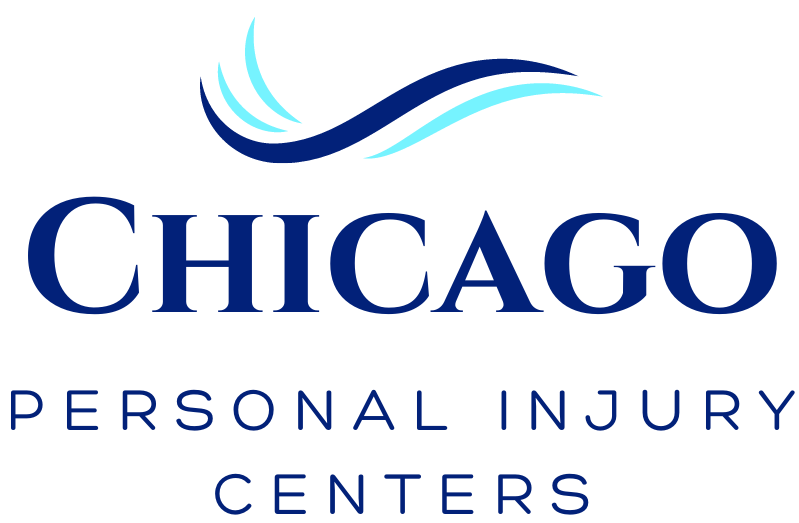Being injured on the job can be both physically painful and emotionally overwhelming. In addition to managing the pain and stress of the injury itself, you might feel unsure of the proper steps to protect your health, secure your financial stability, and understand your rights in the workplace.
For many employees, a workplace injury not only disrupts their daily lives but also brings up difficult questions about how to proceed with their recovery and ensure fair treatment in the compensation process.
At Chicago Personal Injury Centers (CPIC), we understand the unique challenges that come with workplace injuries. Our team is here to support you through each phase of recovery, from getting the right medical care to assisting you in navigating the workers’ compensation process.
Knowing what steps to take immediately after an injury can be critical, as it helps ensure you receive the treatment you need and the financial support you deserve. This guide covers essential actions you can take following a workplace injury, helping you protect both your health and your rights to compensation during this challenging time.
1. Prioritize Safety and Seek Immediate Medical Attention
If you’re injured on the job in a dangerous area, such as near heavy machinery or in a slippery workspace, your first step should be to move to a safer location if you’re able. Avoid further injury by carefully distancing yourself from any hazards.
Seeking immediate medical attention is crucial, even if the injury seems minor at first. Some injuries may not show symptoms right away, but seeing a healthcare provider can catch hidden issues and prevent complications.
It is also important to know your first aid options at the workplace. Many workplaces have first-aid stations or on-site medical personnel. Use these resources for initial care until you can receive further medical evaluation, which will create a documented starting point for your injury.
2. Report the Injury to Your Supervisor
Reporting to your supervisor that you have been injured on the job as soon as possible helps ensure you’re protected by workers’ compensation laws. Immediate notification can also prevent misunderstandings down the road.
Different companies have unique processes for handling injury reports. Be sure to follow your company’s protocols, which may include filling out an incident report form or providing written documentation.
Keep a copy of the report or any emails sent about the injury. This documentation will be valuable if you need to file a workers’ compensation claim or if there are disputes about the incident.
3. Document the Scene of the Accident
If possible, capture clear images or videos of the accident scene, including any equipment, tools, or conditions that contributed to the incident. This visual evidence can be essential if your claim is disputed.
Talk to any coworkers who witnessed the accident and note down their statements. Their accounts could be critical in supporting your claim if your employer or insurance company raises questions.
Document your own account of the incident while it’s fresh in your mind. Include specifics about what happened when you were injured on the job, what you were doing at the time, and any safety concerns you noticed.
4. File a Workers’ Compensation Claim
Workers’ compensation can cover various expenses, including medical bills, lost wages, and in some cases, rehabilitation services. Knowing what’s available to you can help set clear expectations for your recovery support if you’re injured on the job.
Filing your workers’ compensation claim as soon as possible is also essential. Complete all required paperwork carefully, ensuring every detail is correct to avoid delays.
If the process seems complicated, don’t hesitate to reach out to HR or a workers’ compensation specialist at your company. They can help clarify the steps and make sure everything is properly submitted.
5. Follow Up with Medical Treatment
To ensure the best possible recovery from being injured on the job, it’s crucial to follow your healthcare provider’s recommendations closely. This includes attending all follow-up appointments, physical therapy sessions, or specialist visits as required.
Keep all medical records, diagnoses, prescriptions, and treatment plans as evidence for your workers’ compensation claim. These documents are essential if your claim for being injured on the job is questioned or denied.
Keeping your healthcare providers informed about your progress can help them tailor treatments to your needs. They can also give recommendations about work restrictions or your estimated return date.
6. Communicate with Your Employer During Recovery From Being Injured on the Job
Keep your employer informed about your medical progress, especially if you need additional time off. Open communication can smooth the transition back to work and help address any work limitations.
Discuss possible modified duties or part-time options with your employer if you’re not yet ready to resume full responsibilities. This can help you ease back into work while staying mindful of your recovery.
In addition to this, familiarize yourself with protections like the Family and Medical Leave Act (FMLA) or the Americans with Disabilities Act (ADA), which may apply if your injury requires extended leave or accommodations.
7. Seek Legal Advice if Necessary
Some situations, like a denied workers’ compensation claim or an employer disputing your injury, may require legal assistance. If your rights are at risk, a workers’ compensation attorney can help ensure you receive the benefits you deserve.
An attorney can help by gathering evidence, filing an appeal, or negotiating a settlement on your behalf. Their expertise can ease the burden on you and provide guidance on your next steps after being injured on the job.
Legal assistance ensures that your rights are safeguarded and that you receive adequate compensation for your injuries, lost wages, and ongoing medical expenses if needed.
Protecting Your Health and Rights After Being Injured on the Job
Taking the right steps after a workplace injury can make all the difference in your recovery and financial security. By following these guidelines, you protect your health and preserve your rights to workers’ compensation benefits.
Remember, Chicago Personal Injury Centers is here to support you on your road to recovery. If you have been injured on the job and you need expert guidance or have questions about your treatment options, don’t hesitate to contact us at (773) 482-5800.
Stay proactive and take control of your recovery with the right steps and support from professionals who understand the journey.

